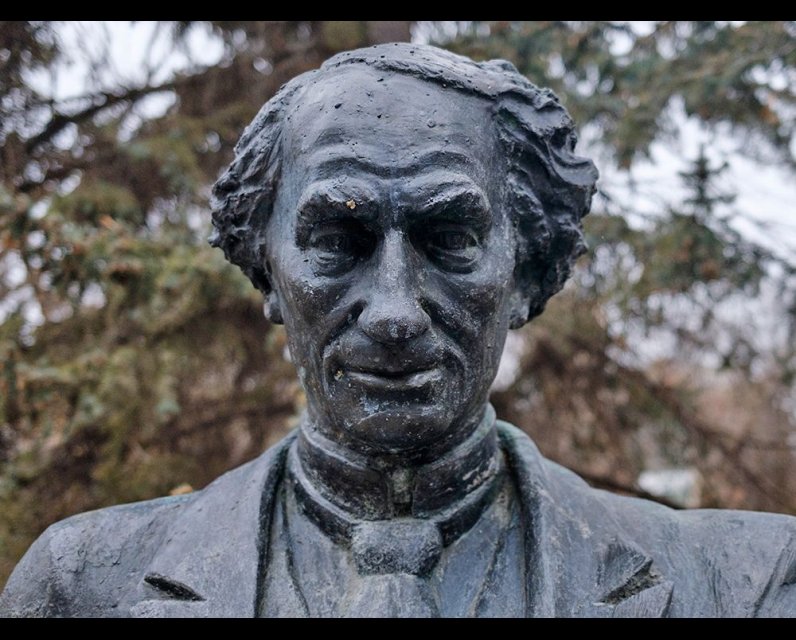Source Feed: National Post
Author: Louis Charbonneau
Publication Date: April 25, 2025 - 09:43
'Context Matters': New campaign aims to give more balanced account of Canadian history
April 25, 2025

Across Canada, statues are coming down, buildings and streets are being renamed, and historical figures are being reevaluated as institutions grapple with reconciling the past with changing values.
While proponents argue these changes address potential historical injustices, they have also sparked heated debates. Some argue that removing monuments and altering historical names erases, misunderstands or even misrepresents history, while others see it as necessary for a more accurate and inclusive understanding of Canada’s past.
In response to the ongoing debate, the Canadian Institute for Historical Education (CIHE) launched the “
Context Matters
” campaign on April 16. The campaign aims to give people a deeper and more balanced perspective on the country’s past by encouraging them to examine historical figures within the complexity of their time rather than judging them by modern standards.
“In an era of rapid social change and political polarization, it’s more important than ever to understand where we’ve come from,” said James Cowan, an advisory council member of CIHE,
in a press release
. “This campaign reminds Canadians that history is not a tool for division, but a foundation for unity.”
One of the historical figures often up for debate is Sir John A. Macdonald, Canada’s first prime minister, who was once widely celebrated as a nation-builder.
Many cities have removed statues of Macdonald, and places bearing his name have been renamed. One notable example is the renaming of the Sir John A. Macdonald Parkway in Ottawa to Kichi Zibi Mikan in 2023, a decision driven by criticism of his Indigenous policies, including his key role in the creation and expansion of the residential school system.
But this conversation isn’t just about one man. It’s about how Canada teaches, remembers, and understands its history.
The campaign warns that Canadians’ lack of a shared understanding of their history is dangerous.
“The removal of statues and renaming of institutions may feel symbolic, but these actions have profound implications for how future generations understand their country,” said Cowan. “This campaign isn’t about erasing history — it’s about reclaiming it with depth, context, and respect.”
As part of the campaign, the CIHE is commissioning new historical research to explore the past of figures like Macdonald. The CIHE is also hosting expert-led events, producing educational content to counter misinformation, and working with educators and policymakers to teach children and teens more about Confederation and civic literacy in schools.
“We shouldn’t just be judging historical figures by the values of our age. We have to understand the context in which they lived,” said Stephan Azzi, a professor of political management, history, and political science at Carleton University and a member of the Historic Sites and Monuments Board of Canada.
The debate around how we see historical figures is divisive for Canadians at a time when we need to be united, said Azzi.
“People don’t like it when history changes. My mother is upset right now because the street that she grew up on has changed its name, and she feels like her history is being erased,” said Azzi.
Azzi believes the decision to remove or preserve a statue requires thoughtful consideration. “There has to be a balanced assessment of a statue to determine whether it should stay up or not,” he said. “History isn’t black and white; people are complicated.”
Mahatma Gandhi, a key leader in India’s non-violent fight for independence from British colonial rule, expressed racist views toward Black Africans. Frederick Douglass, a former slave who became an important voice in the abolitionist movement in the U.S, made some offensive remarks about Indigenous peoples. Just because they held problematic views doesn’t mean we should ignore all the good they did, said Azzi.
A potential solution is to give more context to monuments and historical sites by adding plaques with explanatory text, said Azzi. “You include some text. You include a plaque that tells us a bit more about the individual, both the good and the bad. The more of the picture that we can provide, the better.”
“I think historic sites and monuments are vitally important to understanding ourselves. We can’t understand Canada without understanding where it came from. We can’t understand our province or our community without understanding how it got here,” said Azzi.
Our website is the place for the latest breaking news, exclusive scoops, longreads and provocative commentary. Please bookmark nationalpost.com and sign up for our daily newsletter, Posted, here.
Eight years ago, policy makers with the new NDP government in B.C. and the City of Vancouver were enthusiastic about temporary modular housing: a new, fast and relatively inexpensive way to provide shelter for the growing numbers of homeless people.The idea was to put projects up quickly on land awaiting development, then, when construction moved ahead, to move the units to other vacant land. The province committed $66-million for 600 units in Vancouver in 2017, which became part of $291-million for the whole province. By 2021, 1,900 temporary apartments were sent to 22 communities.
April 25, 2025 - 19:55 | Frances Bula | The Globe and Mail
In a way, Donald Trump has taught us a valuable lesson. His assault on American democracy has shown how fragile and precious democratic institutions are. His contempt for our system of alliances has shown us how vulnerable we would be if that shield were to fall away. His decision to use tariffs as a club reveals how much we rely on international trade and commerce for our prosperity. All three of those pillars – democracy, alliances, trade – were already under threat. After advancing in many parts of the world in the latter part of the 20th century, democracy has been in retreat in the...
April 25, 2025 - 19:55 | Marcus Gee | The Globe and Mail
As the number of measles cases in Alberta continues to rise, the organization representing its doctors says the government needs to ramp up public messaging and prevention.In its latest numbers posted Friday, the provincial government reported 137 total cases since March, exceeding the most recent high of 123 cases reported in the province 25 years ago.Alberta Medical Association president Dr. Shelley Duggan said the numbers suggest that within weeks, that count could skyrocket to more than 1,000.
April 25, 2025 - 19:52 | Lisa Johnson | The Globe and Mail


Comments
Be the first to comment